Spring Meetings will call for urgent action on food security
13/4/2022: Ahead of the Spring Meetings of the IMF and World Bank Group, leaders call on the international community to support vulnerable countries with emergency food supplies and grants to cover urgent financing needs. Sharply higher prices for staples and supply shortages are increasing pressure on households worldwide and pushing millions more into poverty.
Source: World Food Programme
Drought is driving up acute hunger in Somalia
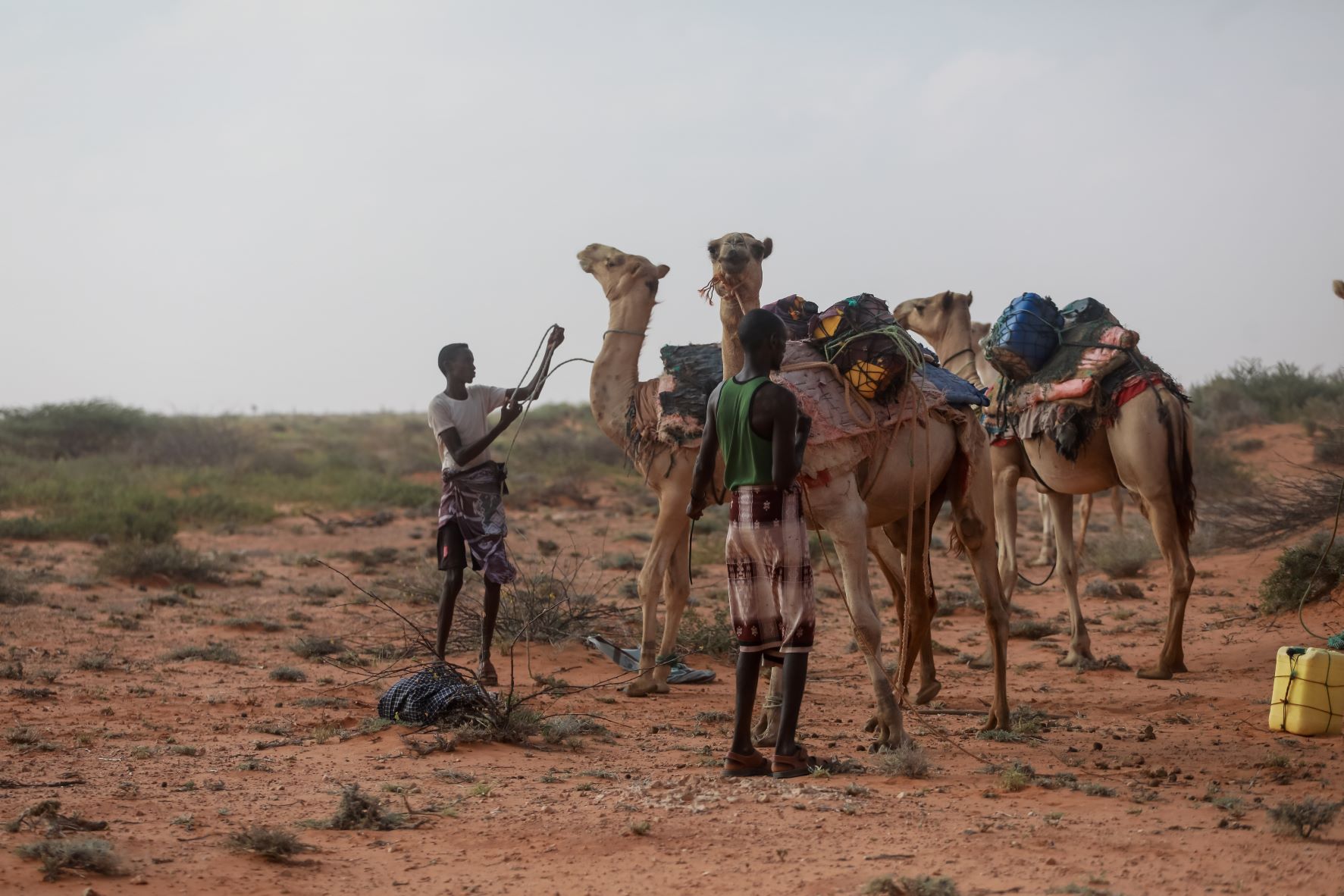 12/4/2022: The latest food security assessment in Somalia indicates that the number of people experiencing the most serious levels of hunger is poised to surpass 38 percent of the country’s population. Aid to keep agriculture-dependent families on their feet is needed at massive scale to stave off catastrophe.
12/4/2022: The latest food security assessment in Somalia indicates that the number of people experiencing the most serious levels of hunger is poised to surpass 38 percent of the country’s population. Aid to keep agriculture-dependent families on their feet is needed at massive scale to stave off catastrophe.
Source: UN Food and Agriculture Organization
Human rights abuse in China’s fishing fleet revealed
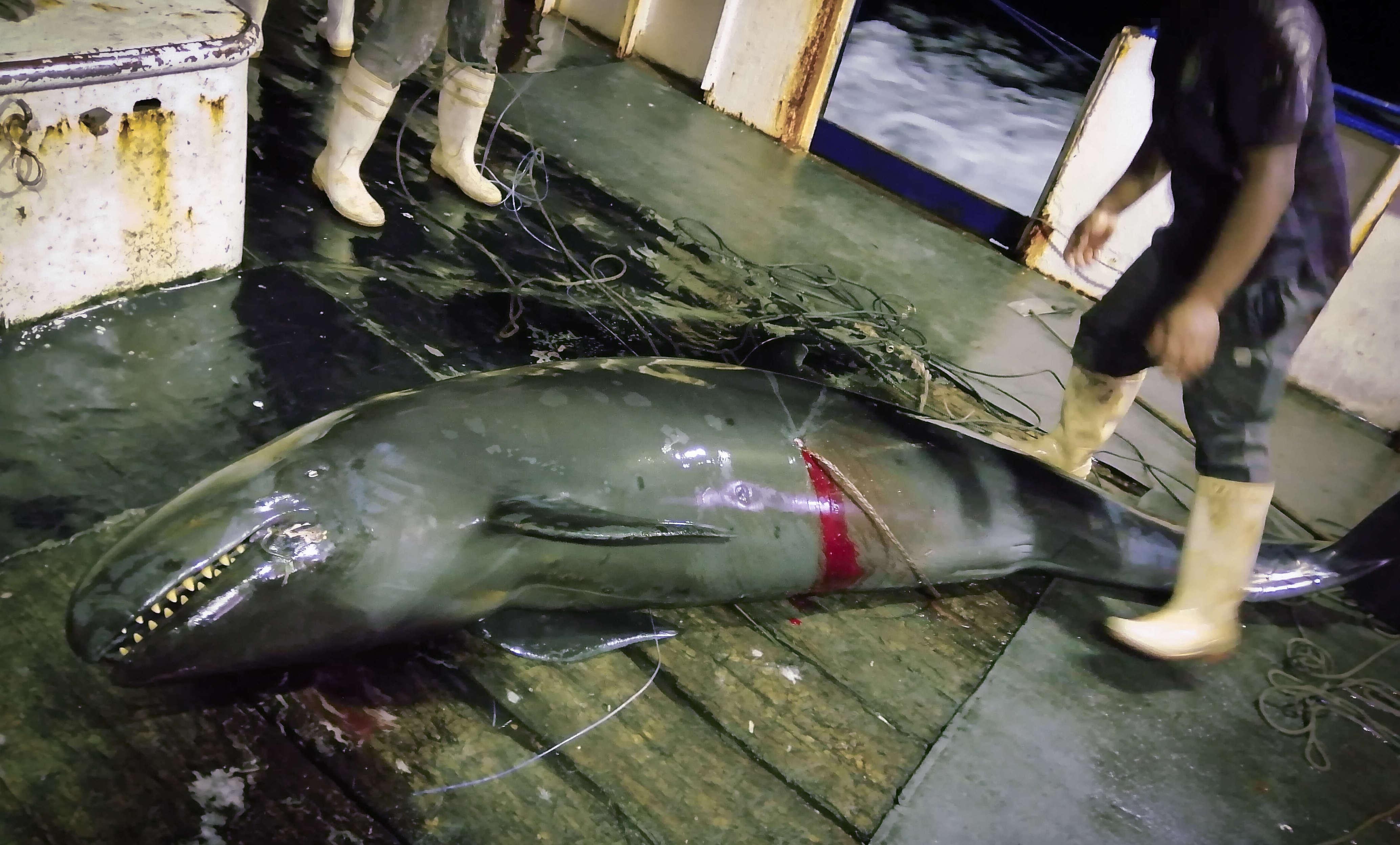 5/4/2022: China’s distant water fleet – by far the world’s largest – is rife with human rights abuses and illegal fishing, according to a new report. China’s state subsidies have allowed the fleet to exploit the waters of developing nations that rely on marine resources for livelihoods and food security.
5/4/2022: China’s distant water fleet – by far the world’s largest – is rife with human rights abuses and illegal fishing, according to a new report. China’s state subsidies have allowed the fleet to exploit the waters of developing nations that rely on marine resources for livelihoods and food security.
Source: Environmental Justice Foundation
Kenyan farmers turn to indigenous seed banks
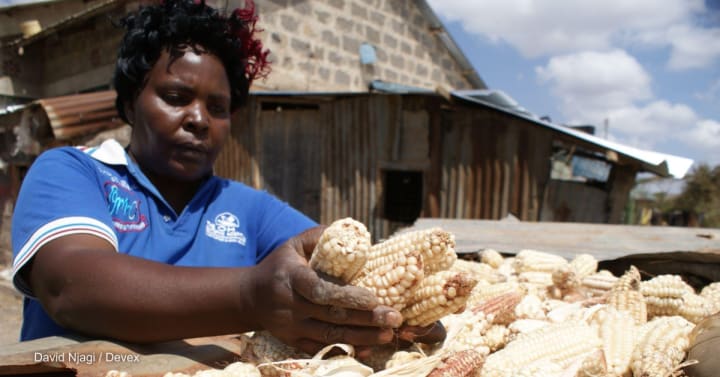 4/4/2022: The Kenyan government has introduced a law restricting the use of traditional seed systems, reliant on open pollination. Instead, the law compels the purchase of costly hybrid seeds, a hardship for small-scale farmers.
4/4/2022: The Kenyan government has introduced a law restricting the use of traditional seed systems, reliant on open pollination. Instead, the law compels the purchase of costly hybrid seeds, a hardship for small-scale farmers.
Source: Devex
Aboard trawlers fishing illegally in West Africa
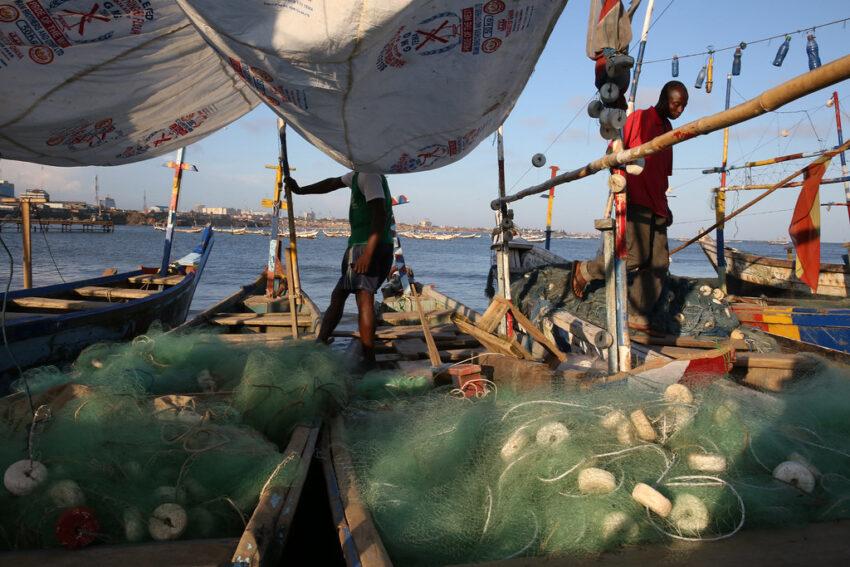 31/3/2022: Authorities in West Africa seem unable or unwilling to tackle the mostly Chinese trawlers depleting stocks and undermining the local fishing industry. This undermines food security in a country like Ghana in which fish accounts for 60% of animal protein in diets.
31/3/2022: Authorities in West Africa seem unable or unwilling to tackle the mostly Chinese trawlers depleting stocks and undermining the local fishing industry. This undermines food security in a country like Ghana in which fish accounts for 60% of animal protein in diets.
Source: African Arguments
The Ukraine crisis threatens a sustainable food future
 1/4/2022: The decisions that farmers and policymakers make over the next few weeks and months will have long-term consequences for the future of the world’s food systems. The wrong decisions will worsen food insecurity and fuel climate change.
1/4/2022: The decisions that farmers and policymakers make over the next few weeks and months will have long-term consequences for the future of the world’s food systems. The wrong decisions will worsen food insecurity and fuel climate change.
Source: World Resources Institute
Lessons from the last global food crisis
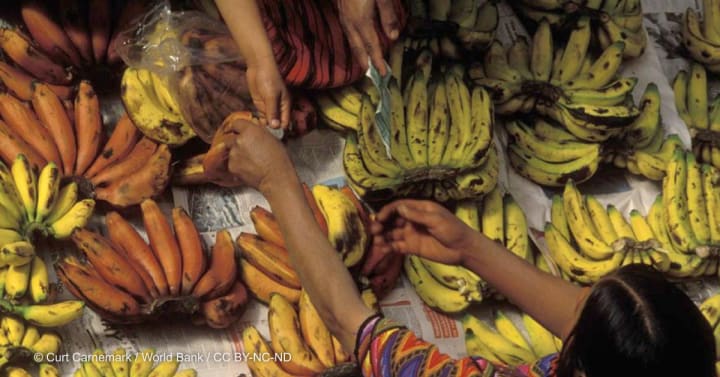 30/3/2022: In 2007-2008 the price of wheat went up 136% while the prices of rice doubled, leading to global social and political unrest. As the Ukraine war threatens similar price instability, policymakers should avoid export bans, sustain social safety nets and improve real-time data about food supplies.
30/3/2022: In 2007-2008 the price of wheat went up 136% while the prices of rice doubled, leading to global social and political unrest. As the Ukraine war threatens similar price instability, policymakers should avoid export bans, sustain social safety nets and improve real-time data about food supplies.
Source: Devex
Donors must rethink Africa’s flagging green revolution
 23/3/2022: A scathing new analysis of the Alliance for a Green Revolution in Africa (AGRA) finds that the program is failing in its objective to increase food security on the continent, despite massive funding from the Bill & Melinda Gates Foundation and the US, UK, and German governments.
23/3/2022: A scathing new analysis of the Alliance for a Green Revolution in Africa (AGRA) finds that the program is failing in its objective to increase food security on the continent, despite massive funding from the Bill & Melinda Gates Foundation and the US, UK, and German governments.
Source: Inter Press Service
Ukraine war feeds fears of another food crisis
 13/3/2022: Important lessons were learned from the 2007–08 food crisis, and avoiding those mistakes will be critical in responding to the Russian invasion of Ukraine. The rice crisis in 2007–08 was caused by panicked importers, exporters and hoarding by small-scale participants along the rice supply chain.
13/3/2022: Important lessons were learned from the 2007–08 food crisis, and avoiding those mistakes will be critical in responding to the Russian invasion of Ukraine. The rice crisis in 2007–08 was caused by panicked importers, exporters and hoarding by small-scale participants along the rice supply chain.
Source: East Asia Forum
The rise in food insecurity amid COVID-19 and conflicts
 17/3/2022: The effects of COVID-19 over the past two years, in addition to the increase in wars and conflicts, climate change and economic crises, have aggravated global food insecurity, generating serious concerns for 2022. An increase of 100 million people suffering from hunger is projected for these past two years, extending the negative trend already reported.
17/3/2022: The effects of COVID-19 over the past two years, in addition to the increase in wars and conflicts, climate change and economic crises, have aggravated global food insecurity, generating serious concerns for 2022. An increase of 100 million people suffering from hunger is projected for these past two years, extending the negative trend already reported.
Source: Inter Press Service